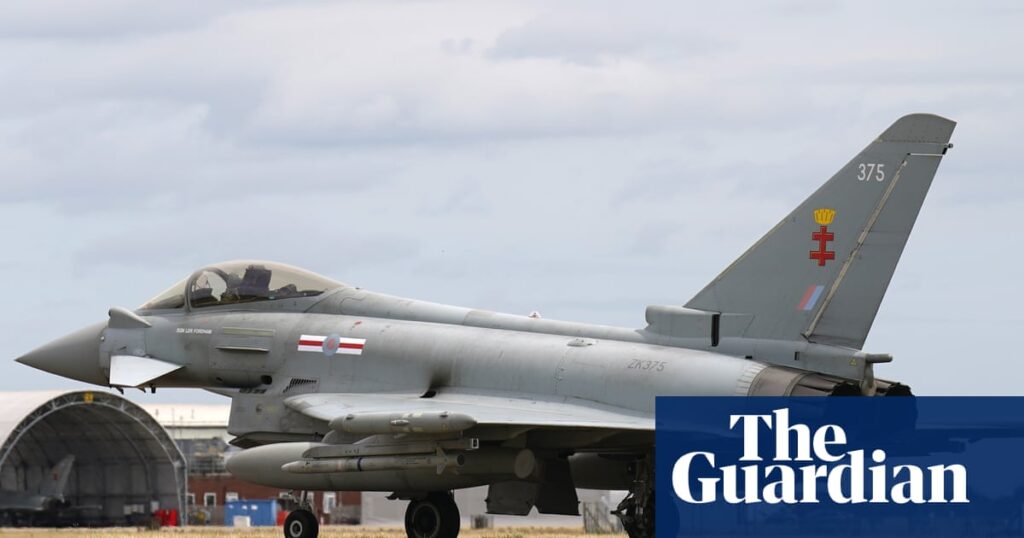British weapons manufacturer BAE Systems has said it is confident of receiving further export orders of the Typhoon fighter jet, a development that would secure the future of several hundred jobs at its factory in Lancashire.
The company is hoping for as many as 150 more orders for the jet, with up to two-thirds of those expected to be assembled in the UK. It comes after Unite, a union representing manufacturing workers, raised concerns over the future of the assembly line at Warton.
Richard Hamilton, who leads work on the Typhoon for BAE Systems, said he was “really confident” of future orders, with Turkey, Qatar and Saudi Arabia the likely buyers.
FTSE 100 manufacturer BAE Systems is the UK’s dominant defence maker, producing weapons ranging from tanks, to warships and nuclear submarines, as well as fighter jets. However, Unite last week said work on the Typhoon’s UK assembly lines had stopped because there were no future orders, threatening its closure.
The Typhoon, also known as the Eurofighter, was developed as a joint project between the UK, Germany, Italy and Spain, and has been a mainstay of the Royal Air Force for two decades, including intercepting Russian aircraft since the invasion of Ukraine. Manufacturing work is shared out between the nations, but each country assembles the planes it has ordered, as well as those of export partners.
In the UK’s case, the Ministry of Defence has not ordered any more of the jets, despite recently confirming a further order of US-made F-35 aircraft. The UK has not secured further exports of the Typhoon to other nations, which has meant work has stopped on the final assembly line at Warton, raising concerns among unions over as many as 500 jobs.
Hamilton said that “we have no intention at the moment of reducing manufacturing headcount”, and suggested that workers could be redeployed on other projects if there were an extended gap until the next orders.
“I want to build more Typhoons here, and I believe we will build more Typhoons here,” he said.
BAE is working on upgrades to the Typhoon’s electronics, including new computer systems and radar, to extend its time in service. Hamilton said a commitment to the upgrades by the UK government would make it more likely other countries would order the planes.
New orders could mean continued production of the Typhoon in the UK for another decade. BAE is also a key part of a consortium of the UK, Italy and Japan producing a new fighter jet, known as Tempest, which is due to enter service in 2035.
The UK government has backed Saudi Arabia’s efforts to join the Tempest programme, despite controversy over the country’s human rights record, including the allegedly state-sanctioned murder of journalist Jamal Khashoggi and its long involvement in the civil war in Yemen.
BAE Systems executives said the company was on track to fly a demonstrator aircraft by 2027.
Keir Starmer last month committed to raise defence spending to the equivalent of 3.5% of GDP in line with Nato allies. Part of that increase will be paid for by cuts to the international aid budget.


